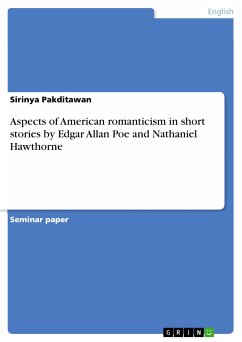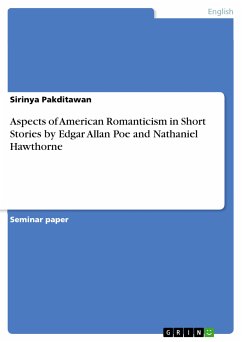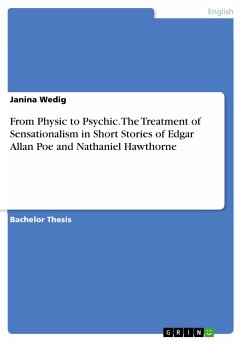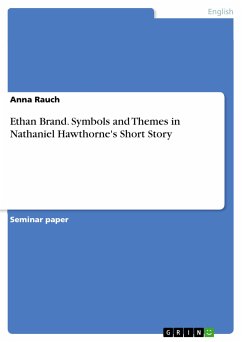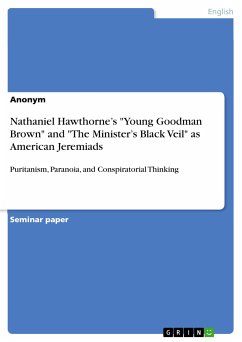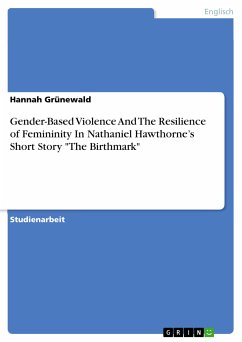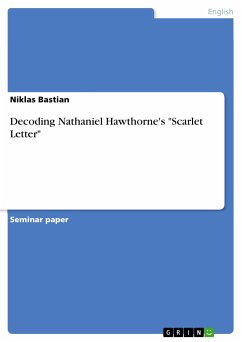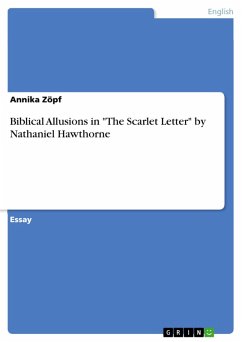Seminar paper from the year 2004 in the subject American Studies - Literature, grade: 1,5, University of Hamburg (Institut für Anglistik und Amerikanistik), course: Nathaniel Hawthorne, language: English, abstract: Edgar Allan Poe (1809-49) is perhaps the best-known American Romantic who worked in the so-called Gothic mode. His poems and stories explore the darker side of the Romantic imagination, dealing with the Grotesque, the supernatural, and the horrifying. Poe also rejected the rational and the intellectual in favour of the intuitive and the emotional, a dominant characteristic of the Romantic Movement. For Nathaniel Hawthorne (1804-64) literature also seemed to depend on the possibility of the Gothic. Hence, of particular interest to Hawthorne was the nature of evil. Like his contemporary Poe, Hawthorne also made extensive use of symbols. One of Hawthorne's and Poe's distinctive concerns is also that of separating head and heart, intellect and soul. Hawthorne explored these Romantic ideas and the themes of obsession, loss and the impossibility of perfection extensively in his short stories "The Artist of the Beautiful" and "The Birthmark". However, in Poe's life and works and thus also in "Ligeia" and "Morella", the stories to be treated in this analysis, love, death and loss, are indissolubly entwined, and serve as the apotheosis of his science and the springboard for his horror. Some critics think that Poe was only a marketer of Gothic horror borrowed from the German models popular during his time. Hence, the pertinent issue in Poe becomes the origins for the terror of the soul. In the following, it will be analyzed which aspects of American Romanticism are treated in Poe' short stories "Ligeia" and "Morella" and in Hawthorne's "The Artist of the Beautiful" and "The Birthmark". For this reason, it is necessary to take a closer look at American Romanticism as a literary movement first.
Dieser Download kann aus rechtlichen Gründen nur mit Rechnungsadresse in A, B, BG, CY, CZ, D, DK, EW, E, FIN, F, GR, HR, H, IRL, I, LT, L, LR, M, NL, PL, P, R, S, SLO, SK ausgeliefert werden.

